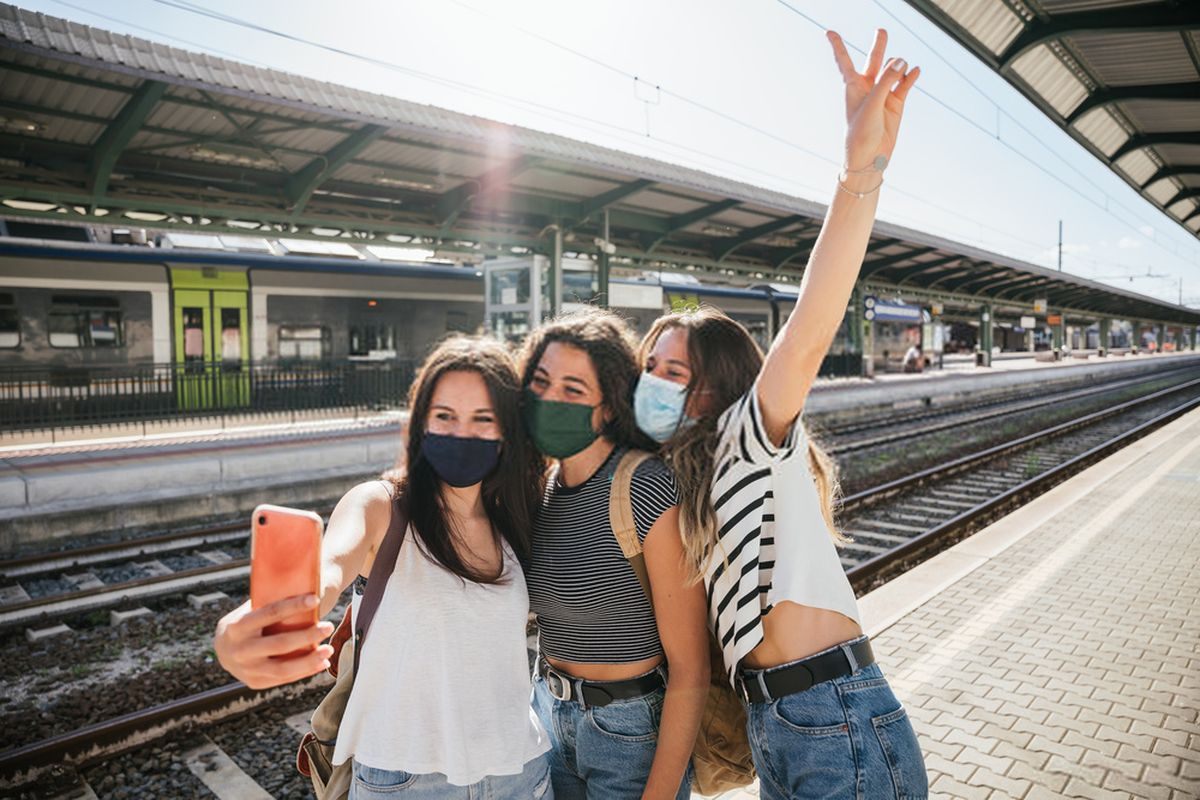With Covid cases coming down in the country, do you feel like you should pack your bags and venture out to your favorite hill or a beach at the first opportunity that you get? Well, if researchers are to be believed, this craving has a name it is called ‘Revenge Travel’.
Experts have also warned that our ‘revenge travel’ — an urge to travel after being under restrictions for an extended period of time — could come at a cost. This has more to do with the ongoing pandemic and the waves of infections and restrictions countries across the world have witnessed.
You may have to reconsider or replan your travels if the latest warning by ICMR is true. The medical body has warned that a rise in social gatherings by tourists or mass congregations due to social, religious, or political events may set off the third COVID-19 wave in India.
What does the study about the revenge travel say?
A study by researchers from the Indian Council of Medical Research (ICMR) and Imperial College London states that ‘revenge travel’ could worsen the third Covid wave in India, and cause a higher peak between the months of February and March next year.
Researchers said that data from Himachal Pradesh suggests that in a typical holiday season, tourism can increase the population by 40 percent than normal. “Taking this into consideration, the third-wave peak can increase by up to 47 percent during the holiday season and can occur two weeks earlier compared to a scenario of easing restrictions in the absence of holiday travel,” researchers said.
Published last month in the peer-reviewed Journal of Travel Medicine, the study attempted to model the impact of domestic travel on a potential third Covid-19 wave in India. The objectives included recognizing the potential risks associated with an increase in revenge tourism. ICMR Director General Balram Bhargava is among the researchers who carried out the study, The Print reported.
For this, the researchers created a mathematical model that sought to recreate what would happen in a hypothetical state of India that resembles Himachal Pradesh based on the dynamics of its first and second waves — including the much lower seroprevalence of SARS-CoV-2 there compared to the rest of the country.
While India’s second Covid wave was severe, its impact in smaller states with low population density was less intense, the researchers note. Not only this, cases in popular tourist destinations such as Himachal Pradesh saw a delayed peak, they add.
“There are undoubtedly important benefits as society gradually returns to normal, in India and elsewhere; domestic travel to holiday destinations provides benefits not just for visitors, but also for local economies that have been under considerable stress for over a year,” the team wrote in the study.
“A shared sense of responsibility, amongst visitors, residents, and local authorities, will go a long way towards protecting the welfare of the country as a whole,” the researchers added.
A balanced approach to travel
For the team, revenge travel is a disturbing trend when it involves destinations in Himalayan mountain towns, which have kept numbers low in previous waves.
The researchers say the relaxation of state-level travel restrictions could give rise to a third wave on its own. However, a sudden increase in population density due to tourists or mass congregations on account of social, political, or religious reasons could worsen the third wave.
Data from Himachal Pradesh suggests that, in a typical holiday season, tourism can increase the population in the state by as much as 40 percent.
Under these circumstances, the third-wave peak could increase by up to 47 percent during the holiday season and could occur two weeks earlier, compared to a scenario where easing of restrictions happens off-season.
In the worst-case scenario, where researchers take into account that India’s high population density has a stronger effect on transmission, the third-wave peak could go up 103 percent, and the timing of the epidemic peak could be hastened by four weeks, compared to a scenario of easing restrictions in the absence of holiday travel.
An IIT-Mandi study last year had also suggested that domestic travel had a major role in the spread of Covid-19 in India.
What another year of curbing your craving for travel!
Not quite, researchers say the focus should be on responsible traveling with holidayers carrying a recent Covid-negative test as well as proof of vaccination. States could also be guided on how they could best mitigate travel-related risks.
According to the industry experts, when people travel with family, they are willing to spend more on accommodation to ensure that the stay is safe, the room is sanitized, and comfortable.
While tourism is improving, on one hand, locals in tourist areas are worried about new people coming from different corners of the country amid the Covid-19 pandemic.
Revenge travel-related concern not unique to India
Confined largely to their homes, professionals across the UK are marking their calendars, totting up their savings, and extricating themselves from work commitments in order to explore the world, reported the Independent.
Revenge travel began as an American trend as foreign countries opened their doors quicker to the US than to the UK. “Americans are hitting the roads and skies in droves,” reported Forbes in June. It defined the trend as a perfect storm of pent-up demand, stored-up annual leave, saved-up cash, and fully-vaxed confidence.
As Conde Nast Traveler US heralded the rise of the “adult gap year”, a Eurofins survey of 2,000 UK residents found that more than half are saving all of their spare cash for their next adventure, with an average travel fund of £2,543 already squirreled away.



